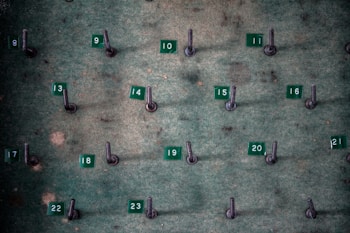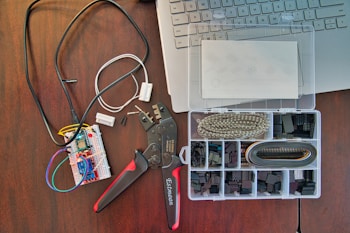 Spanish
Spanish
Vocab Builder for commonly used words in Spanish.

(aceite de) ricino
(Aceite de) ricino is a term in Spanish that refers to 'castor oil' in English. Castor oil is a type of vegetable oil that comes from the seeds of the castor oil plant, Ricinus communis. It has been used for centuries as a natural remedy for a wide variety of health problems. It is commonly used in cosmetic products, soaps, lubricants, and medicinal applications.
Example sentences with (aceite de) ricino →
(auto)biografía
(Auto)biografía is a Spanish term which means (auto)biography in English. This refers to a detailed description of a person's life written by someone else (biography), or a detailed description of one's own life (autobiography). AutoBiografía can also include details like birth, education, work, relationships and death, usually including an analysis of the person's personality and significant events in their life.
Example sentences with (auto)biografía →
(compañía de) danza clásica
(compañía de) danza clásica is a Spanish term that is often translated as '(partnership) classical dance' in English. It is used to describe a group or company of dancers that perform classical dance forms, such as ballet. It can refer to both the collective group of dancers and the actual performances they produce. The inclusion of 'compañía de' emphasizes the organized or partnership nature of the group. This term is often used in contexts related to performing arts, culture, and entertainment.
Example sentences with (compañía de) danza clásica →
(compañía de) danza contemporánea
The term '(compañía de) danza contemporánea' in Spanish refers to a '(company) contemporary dance'. This usually specifies a body or group dedicated to performing, creating, and fostering contemporary dance, a genre of dance that emerged in the mid-20th century, incorporating elements from many styles of dance. The '(compañía de)' aspect implies organization, collaboration, and teamwork in this artistic endeavor.
Example sentences with (compañía de) danza contemporánea →
(des)enchufar un electrodoméstico
(Des)enchufar un electrodoméstico is a Spanish phrase that refers to the act of (un)plugging an appliance in English. This could be any appliance that needs electricity to function, such as a refrigerator, a washing machine, a microwave, etc. The word 'enchufar' translates to 'plug in', and 'desenchufar' to 'unplug'. An 'electrodoméstico' is any household device that runs on electricity, which we refer to in English as an 'appliance'. Therefore, when someone uses this phrase, they could either be talking about connecting an appliance to a power source or removing it from one.
Example sentences with (des)enchufar un electrodoméstico →
(des)instalar un programa
(des)instalar un programa in Spanish translates to (un)install a program in English. The verb 'instalar' means to set up or install software to a system, whereas 'desinstalar' means to remove or uninstall software from a system. It is fundamental terminology for anyone working in technology or anyone who uses a computer regularly. This term is typically used in the computing or technical context.
Example sentences with (des)instalar un programa →
(el cielo) estar despejado
(el cielo) estar despejado is a phrase used in Spanish-speaking cultures to describe the condition of the sky. It refers to when there are no clouds obscuring the blue sky, allowing full visibility of the sky and the sun. In English, this phrase translates to '(the sky) to be clear'. The phrase can be used in daily conversations, weather reports, and poetic contexts to indicate the state of the weather, particularly the sky.
Example sentences with (el cielo) estar despejado →
(el cielo) estar nublado
(el cielo) estar nublado is a Spanish phrase that translates to '(the sky) be cloudy' in English. It is typically used to describe weather conditions, particularly when the sky is covered in clouds, and visibility might be reduced. This phrase can also be used metaphorically to suggest a gloomy, pessimistic, or negative situation or mood.
Example sentences with (el cielo) estar nublado →
(el) centro
(El) centro is a Spanish word that refers to a specific position or point. In English, it is generally translated as 'the centre'. It could refer to a physical, geographical, or conceptual point that is equidistant from the boundaries or it could refer to a place where certain activities are concentrated. For example, when used in phrases such as 'el centro de la ciudad', it indicates the middle or the heart of the city, usually the busiest part. When referred to a circle, 'el centro' would mean the point that is equally distant from the boundary of the circle.
Example sentences with (el) centro →
(hermanos) gemelos
(Hermanos) gemelos in Spanish translates to (brothers) twins in English. This is often used to refer to a pair of brothers who are twins, meaning they were born at the same time from the same pregnancy. The word 'hermanos' specifically refers to 'brothers', and 'gemelos' to 'twins'. In a broader context outside of family, 'gemelos' can also be used to describe two things that are identical or very similar in appearance.
Example sentences with (hermanos) gemelos →
(hidro)masaje
(Hidro)masaje is a Spanish term that refers to a hydro massage. A hydro massage is a treatment procedure applied by water and air pressure, either simultaneously or alternatively, to relieve muscular tension and stimulate circulation. It is often performed in specialized facilities like spas and wellness centers. This treatment method is believed to alleviate muscle and joint pain, improve blood circulation, and encourage relaxation and general well-being. Hydro massages can include whirlpool baths, pressurized jets in swimming pools, or individual hydro massage machines.
Example sentences with (hidro)masaje →
(las) afueras
(Las) Afueras is a Spanish noun which generally refers to areas that are outside or on the periphery of a town or city. It's the plural form and is usually preceded by the definite article 'las'. The translation of '(las) afueras' into English is '(the) outskirts' or '(the) outside'. When used in context, it gives the idea of being located away from the center or main parts of a city.
Example sentences with (las) afueras →
(nota) blanca
(nota) blanca, in English, could be translated as 'blank note' or 'white note'. However, it is often used in Spanish-speaking countries as a term for a form of passive protest which involves submitting a blank, unmarked, or invalid vote in an election. The expression can also be used in a broader context to represent a refusal to participate in something, or to symbolize a neutral or non-committal stance on a particular issue.
Example sentences with (nota) blanca →
(nota) corchea
(Nota) Corchea is a term used in music, specifically known within the field of music notation. In English, it is referred to as the 'quaver'. This note has one flag or one tail in its notation. The importance of the (nota) corchea or quaver lies in its duration. It typically occupies one-half of the beat in a piece of music written in 4/4 time. This means it is half as long as a crotchet, or quarter note, which fills one beat.
Example sentences with (nota) corchea →
(nota) negra
(Nota) negra is a Spanish term that roughly translates to 'black note' in English. However, the term's meaning extends beyond the literal translation. In the context of music, it refers to a 'quarter note', which is a note played for one quarter of the duration of a whole note. In a broader societal context, particularly within Latin American cultures, 'nota negra' can refer to a piece of negative or bad news. The specific interpretation depends on the context in which the term is used.
Example sentences with (nota) negra →
(nota) semicorchea
(nota) semicorchea is a music term in Spanish that is equivalent to the English term 'sixteenth note'. In music notation, it is a note played for half the duration of an eighth note (quaver), hence the name 'sixteenth note'. It is often used in sheet music and scores and is recognizable by its oval shape with a stem and two flags or beams.
Example sentences with (nota) semicorchea →
(número de) matrícula
(número de) matrícula is a Spanish term that relates to a system used in educational institutions. It references an unique identification number assigned to each student upon enrolment. This number becomes the personal identifier for the student throughout their academic journey at a particular school, college or university. The term can be translated to '(number of) enrolment' in English.
Example sentences with (número de) matrícula →
(ordenador) portátil
The Spanish phrase '(ordenador) portátil' translates to 'laptop' in English. This term generally refers to a portable computer that you can carry around with you. It has all the functionalities of a desktop computer but is compact and suitable for travel or mobile work. In some Spanish speaking regions like Spain, they use the word 'ordenador' for computer, and 'portátil' means portable. So, '(ordenador) portátil' is literally a 'portable computer' or what is known as a 'laptop' in English.
Example sentences with (ordenador) portátil →
(pantalones) vaqueros
The term '(pantalones) vaqueros' in Spanish refers to a specific type of clothing known as 'jeans' in English. Originating from the American West, these are typically pants made from denim or dungaree cloth, often blue in color, and are a staple in modern wardrobes around the world. The term 'vaquero' has its roots in the Spanish word for cowboy, giving a nod to the origins of this style of pants.
Example sentences with (pantalones) vaqueros →
(pequeño) electrodoméstico
(pequeño) electrodoméstico is a Spanish term that translates to (small) appliance in English. It represents a type of household device, usually electrical, that performs a specific function. These functions may include cooking, cleaning, or food preservation. Examples of (pequeño) electrodoméstico can include a microwave, blender, toaster, or refrigerator. This term is commonly used in both household and commercial settings.
Example sentences with (pequeño) electrodoméstico →
(primer) ministro
'(Primer) ministro' is a Spanish term that refers to the term '(First) Minister' in English. In political terms, it is most often used to denote the head of a cabinet, similar to Prime Minister or Premier. This public official is typically the leader of the executive branch of government in a parliamentary system. The minister leads cabinet meetings and oversees the execution of government plans and strategies. The adjective 'primer', meaning 'first', indicates the prominence or superiority of the position within a governmental structure.
Example sentences with (primer) ministro →
(re)iniciar el ordenador
(Re)iniciar el ordenador, a Spanish phrase, translates to '(re)start the computer' in English. It is an action phrase and is often used in the context of troubleshooting or updating a computer system. 'Reiniciar' means to start something again, or to reboot, and 'el ordenador' is a term used for a computer or a personal computer system. The phrase combines these terms for a specific technical instruction.
Example sentences with (re)iniciar el ordenador →
(sección de) bebidas
(Sección de) bebidas is a Spanish term that translates to '(section of) beverages' in English. This term is commonly seen in grocery stores, restaurants, or menus, where different types of drinks or liquid refreshments are grouped or categorized. In such contexts, this Spanish term refers to the area or section where various kinds of beverages like soft drinks, juices, alcoholic drinks, and more, are located or listed for selection.
Example sentences with (sección de) bebidas →
(sección de) congelados
(sección de) congelados in Spanish refers to the section in a store where frozen goods are kept. This could include various items like frozen vegetables, frozen meat, frozen meals, ice creams, and many more. As the name suggests, all products in this area are kept at a freezing temperature to maintain their freshness until they're ready for use. This term directly translates to '(section of) frozen' in English.
Example sentences with (sección de) congelados →
(sección de) cultura
(sección de) cultura, in English language, refers to the term (section) culture. It denotes a part or subdivision of a larger community or society that is characterized by a specific group's shared practices, values, beliefs, and behaviors. This concept encompasses various aspects such as art, music, literature, performing arts, and social customs etc. Essentially, it represents a particular facet or aspect of a community or society that reflects a group's patterns of behavior and intellectual development.
Example sentences with (sección de) cultura →
(sección de) deportes
The Spanish phrase '(sección de) deportes' translates to '(section of) sports' in English. This phrase is often used in the context of newspapers, magazines, websites, or any other medium of information where information is divided into sections. In this context, '(sección de) deportes' refers to the specific section where news, articles, scores, and other related information regarding various sports are found.
Example sentences with (sección de) deportes →
(sección de) economía
(sección de) economía, or 'economy section' in English, is a term often used in publishing, such as newspapers, television broadcasts, or web articles, to refer to a specific segment or division dedicated to topics related to the economy. This economic content may include financial news, market updates, analyses of economic trends or reports on various economic factors, such as inflation, interest rates, employment percentages, and GDP figures. It serves as a resource for readers or viewers looking for information and updates about the state of the economy at a local, regional, national, or global scale.
Example sentences with (sección de) economía →
(sección de) lácteos
(Sección de) lácteos refers to the portion or section of a store or market where dairy products are sold. Dairy products are mainly derived from milk and include items such as cheese, butter, yogurt, and milk itself. This term is widely used in supermarkets and grocery stores.
Example sentences with (sección de) lácteos →
(servicio de) atención al cliente
(servicio de) atención al cliente translates to (service) customer service in English. This term is common in business and commerce sectors, and refers to the provision of assistance to customers before, during, and after a purchase. In Spanish-speaking regions, it is used to denote the various forms of interaction a business has with its customers, with an aim to enhance customer satisfaction.
Example sentences with (servicio de) atención al cliente →
(servicio de) información al cliente
The Spanish phrase '(servicio de) información al cliente' translates to '(service of) customer information' in English. This refers to a service provided by companies to relay important information to their customers. It could be about a specific product, a policy, or an issue that has come up. This service is essential for maintaining open communication between a company and its customers, ensuring all of their information needs are met.
Example sentences with (servicio de) información al cliente →